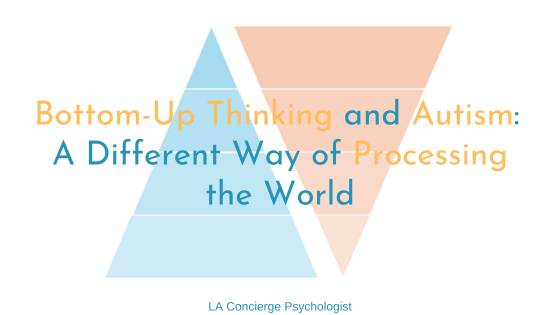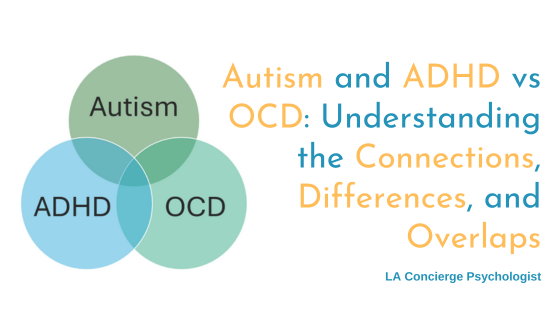This blog post—the second in a two-part series—describes three essential self-advocacy skills for autism. It provides practical examples of how to apply these skills in professional and personal situations. For a detailed introduction to this topic, read Part 1, “Why Self-Advocacy Is So Important With Autism.”
Autistic people typically have very different needs and preferences than allistic (non-autistic) people do. When they are young, oftentimes, the adults in their lives advocate on their behalf. When they reach adulthood, they have less support and a greater desire for independence. As such, they must take responsibility for their own wellbeing, goals, and values.
As discussed in the first part of this series, autistic adults must learn skills that empower them to stand up for themselves and promote their interests. These skills are collectively referred to as “self-advocacy.”
Three self-advocacy skills that are essential for autism
If you are an autistic adult, you can empower yourself by learning and practicing three basic self-advocacy skills: self-awareness, support awareness, and communication.
Self-awareness
You can’t advocate for yourself unless you know what you want and need. What do you value? What are your goals? Forget about the needs and goals of the people around you for a moment and consider what you need to be happy, healthy, and fulfilled in life.
Self-advocacy also requires an understanding of your own strengths and areas of support. What do you enjoy, and what are you good at? Which tasks do you often struggle with? In which areas are you most in need of support or accommodations?
If you’re unsure what kind of support you need, you can learn more about the autism “spectrum” and common autistic traits. Which characteristics sound familiar? You should also consider whether you have any co-occurring conditions such as ADHD, anxiety, or depression and how that might affect your support needs.
As a child, you might have developed unhealthy coping mechanisms that mask your autistic traits—even from yourself. To get an outside perspective on your aptitude in various areas, you might need to seek the opinion of a trusted friend or family member. Even better: get an evaluation from a therapist who embraces neurodiversity.
Support awareness
What kind of support is available to help you overcome your shortcomings and pursue your goals? To find out, invest some time learning about the various programs and resources you have access to. Autism-specific support is typically best, but you should also consider programs open to the general public (as long as the support is a good match for your needs).
If you have a formal autism diagnosis, you are legally entitled to certain supports under the Americans with Disabilities Act. Disability rights vary depending on the context, so you should familiarize yourself with disability laws. You may want to educate yourself on things such as how they apply in educational settings vs. the workplace.
In addition to legally mandated benefits, your school or workplace might offer a counselor, tutor, or another support program that would benefit you. You can find validation, companionship, and advice on online forums and interest groups. You can also ask your therapist, friends, family members, mentors, religious leaders, etc. for support in achieving your goals.
Communication
Self-advocacy relies on effective communication. Because of the double-empathy problem, we know that allistic people often misunderstand autistic people. Communication differences may make it difficult for an allisic person to understand what you’re asking for. Take this into consideration as you think about how to communicate your needs to others.
Before asking someone for accommodations or other support, it may help to write down what you’ll say in advance. How will you introduce the conversation? What exactly will you ask for? Tell the person what you need, explain why it would help you, and politely ask whether they can help. Roleplay with a friend or therapist for practice.
It’s draining and frustrating to have your needs misunderstood or ignored by other people. That frustration will only make it harder for you to communicate. To avoid this pitfall, learn emotional management skills and try to view the people you’re asking for help as allies. By communicating respectfully and calmly, you increase your chances of getting the support you need.
Make it as easy as possible for people to help you. If the person you’re asking for help is resistant to your request at first, listen to their concerns and try to be sensitive to their needs. There may be a compromise that will work for everyone. Don’t demand things, but do be assertive and persistent. Follow any formal process that may be required to get the support you need.
Asking for what you need is hard when you’re new at it, but it gets easier over time. Start with small requests and allow those minor victories to build your confidence. Be patient with yourself, and don’t give up when you encounter setbacks.
Self-advocacy examples for autistic adults
Your unique goals and situation will determine which areas of your life you should focus your self-advocacy efforts on. The self-advocacy examples below may not apply to you, but we hope they will inform and inspire your own self-advocacy efforts.
Self-advocacy in college
If you are planning to attend college in the future, your professional self-advocacy could include school selection. You could contact each school to ask about their accommodation policies and other support programs to get an idea of the degree of sensitivity/respect you’ll receive once enrolled. You’re not obligated to reveal your autism diagnosis to the school, so you could make these phone calls anonymously.
You could also request ADA accommodations in college after enrolling. For example, you might request additional test-taking time or permission to use noise-canceling headphones in class. Even if you don’t seek formal accommodations, you could still advocate for yourself in the classroom. For example, if you were having trouble in a certain subject, you can go to office hours or find a tutor to help you.
Self-advocacy at work
Workplace discrimination due to a disability is illegal, and autism is a protected disability under U.S. law. If you feel you’ve been unfairly discriminated against during an employer’s hiring process, a possible way to advocate for yourself is by filing a legal complaint.
After landing a job, you could advocate for yourself by talking with a supervisor about your career goals and asking how you could work toward them. If something about the working environment makes you uncomfortable, such as overly bright lighting or noise, you could request a change. You could also ask for things like a more predictable routine, written instructions for work duties, or the ability to access an agenda before meetings. Learn more about autism and self-advocacy at work.
Self-advocacy in personal relationships
Do your parents control your finances, speak for you in social situations, or shield you from life’s challenges? Requesting more freedom and responsibility could be a form of self-advocacy for you. No matter how much you love and appreciate your parents, it is essential to set boundaries that enable your autonomy and acknowledge your competence.
Do your friends ever make assumptions about you or try to make decisions on your behalf? They might neglect to invite you to social events they presume would be too stimulating. Or perhaps they don’t support a career path they think would be too difficult for an autistic person. You could advocate for yourself in situations like these by telling your friends that you appreciate their good intentions but need the freedom to make your own life choices.
You can also advocate for yourself in romantic relationships. For example, an extroverted partner might want you to spend all of your free time with them. If so, you might need to practice self-advocacy by explaining that alone time is essential for you and asking them to respect your need for solitude. Relationship self-advocacy is particularly important for autistic women who are vulnerable to exploitative relationships.
Supporting Your Self-Advocacy Efforts
As adult autism specialists, we recognize that self-advocacy is incredibly difficult for some autistic adults. In our work together, we can help you brainstorm concrete (and comfortable) ways to advocate for yourself. Self-advocacy skills can become a part of your daily life with professional support. Send us a message to see how we can help or book a free 20 minute consultation with Dr. Priscilla Barajas or Dr. Jenifer Goldman.



